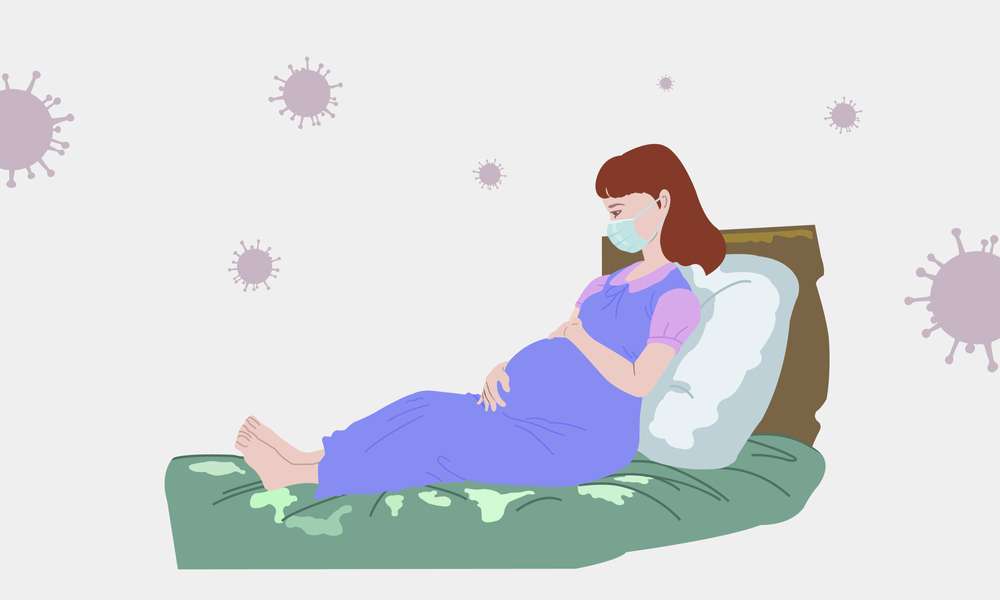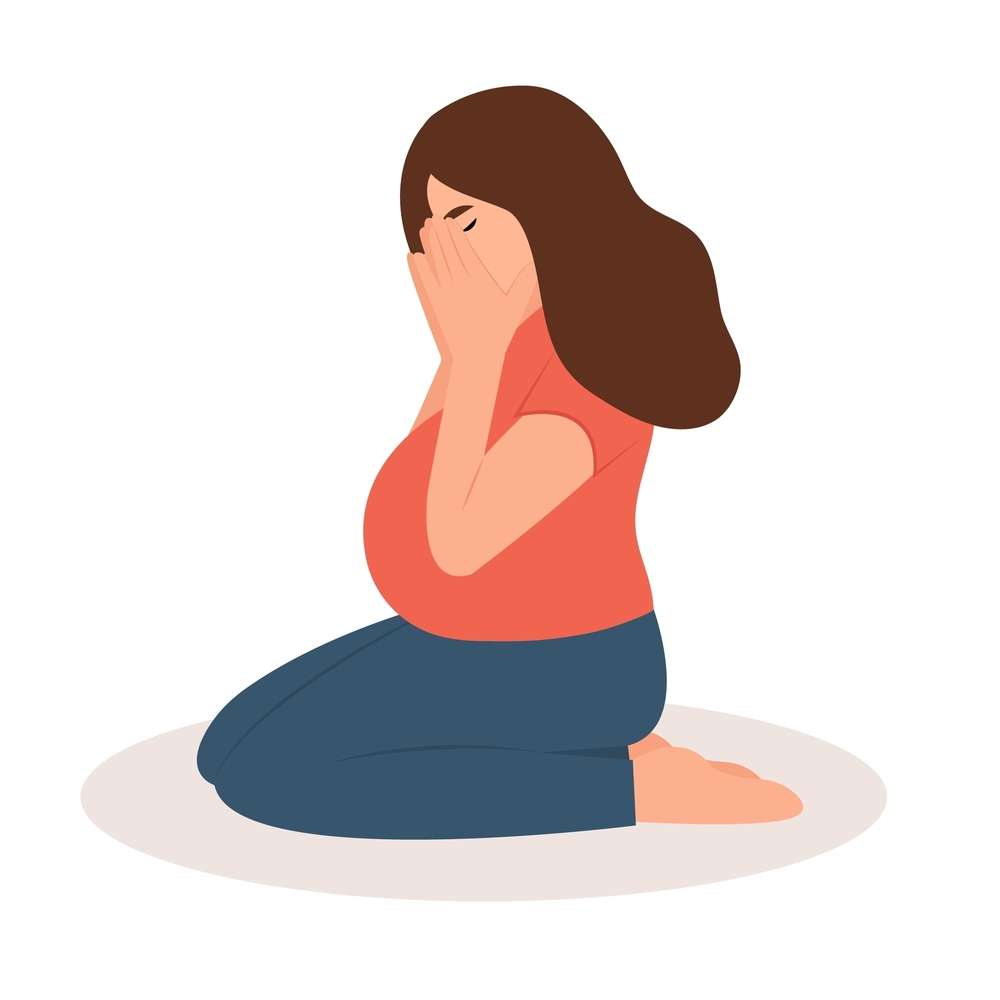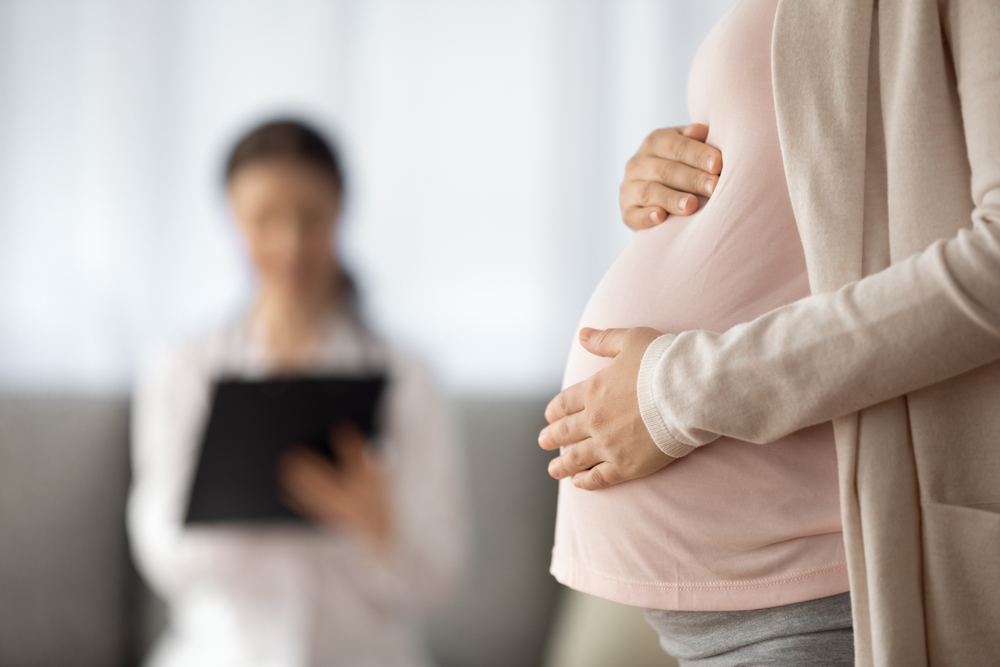Pregnancy Insomnia:
Insomnia during pregnancy is a typical sleep condition that many pregnant women face at some time during their pregnancy. During pregnancy, it is difficult to get asleep, stay asleep, or receive comfortable sleep. Insomnia during pregnancy can occur at any stage of pregnancy, but it is more common in the later trimesters. It is frequently caused by a mix of physical discomfort, hormonal changes, and pregnancy-related anxiety or stress. Here are some frequent causes of pregnancy insomnia, as well as some methods for dealing with it:
- Changes in Hormones: Hormonal shifts during pregnancy might disrupt sleep patterns. Increased progesterone levels might cause daytime tiredness and evening restlessness.
- Frequent Urination: As the pregnancy advances, the developing uterus can put pressure on the bladder, resulting in more frequent nighttime trips to the bathroom.
- Physical Discomfort: Back pain, leg cramps, heartburn, and the general discomfort of carrying excess weight can make finding a comfortable sleeping position difficult.
- Anxiety and Stress: Pregnancy can cause a wide range of feelings and concerns, making it difficult to relax and sleep.
Consider the following ways for dealing with pregnant insomnia:
- Create a Routine: Maintain a consistent sleep schedule by going to bed and waking up at the same time every day, including weekends. This aids in the regulation of your body’s internal clock.
- Establish a Relaxing Bedtime Routine: Create relaxing sleep rituals such as reading a book, taking a warm bath, or practicing relaxation techniques like deep breathing or pregnant yoga.
- Environment for Sleep: Create the most pleasant sleeping environment possible. Invest in a supportive pregnancy pillow and change the temperature of the room to your preference.
- Reduce the risk of heartburn and indigestion by avoiding heavy meals, spicy or acidic foods, and caffeine close to bedtime.
Stay Active: Regular exercise during pregnancy will help you sleep better. Avoid hard workouts close to bedtime, however. - Stay Hydrated: While you may need to drink more water during pregnancy, try to restrict your fluid consumption in the evening to cut down on overnight toilet excursions.
- Stress Management: Consider prenatal yoga, meditation, or mindfulness techniques to assist manage pregnant stress and anxiety.
- Limit Your Screen Time: Reduce your exposure to screens (phones, tablets, laptops, and televisions) before night since the blue light emitted by these devices can interfere with your body’s generation of melatonin, a hormone that governs sleep.
- Seek Help: Discuss your sleep issues with your healthcare physician. They can offer advice and may suggest safe sleep aids or practices to relieve discomfort.
- Pregnancy insomnia is a common and transient problem for many pregnant women. Consult your healthcare professional for individualized advice and potential remedies if it gets severe and substantially affects your quality of life. Prioritizing relaxation and stress management throughout pregnancy is critical for your overall health and the health of your baby.
Early pregnancy Insomnia:
Pregnancy in its early stages Insomnia is a sleep problem that some pregnant women encounter during their first trimester. While it has some parallels with insomnia in general, it is frequently caused by circumstances specific to the early stages of pregnancy.
when does pregnancy insomnia start?
Pregnancy Insomnia can begin at different times for different women, but it is most frequent during the first trimester and becomes more acute in the second and third trimesters. Here’s a summary of when and why pregnant insomnia may occur:
First Trimester (Weeks 1-12):
Hormonal changes occur quickly throughout the early stages of pregnancy. The increase in progesterone, which aids in the maintenance of the uterine lining in preparation for a possible pregnancy, can cause daytime sleepiness and overnight restlessness. In the first trimester, nausea and frequent urination may also affect sleep habits.
Second Trimester (Weeks 13-28):
During the second trimester, some women get relief from sleeplessness. Hormonal swings may stabilize considerably, and early pregnancy discomforts, such as morning sickness, frequently ease. However, as the pregnancy proceeds and the baby’s size and weight grow, physical discomfort and the need for frequent bathroom breaks can cause sleep disruptions.
Third Trimester(weeks 29-40):
Pregnancy in the third trimester (weeks 29-40) In the third trimester, sleeplessness is most common and severe. The expanding baby places tremendous strain on the bladder, causing frequent urine. Back pain, leg cramping, and difficulties finding a comfortable sleeping posture can all make it difficult to sleep well. Anxiety and stress associated with labor, delivery, and approaching fatherhood can also contribute to sleeplessness in the third trimester.
Note:
It’s crucial to remember that not all pregnant women suffer from insomnia, and for others, it’s only on occasion rather than on a regular basis. The severity and timing of pregnancy insomnia might vary greatly between individuals. Consider the measures listed in previous comments and consult your healthcare professional for specialized guidance and support if you are experiencing sleep difficulties during pregnancy. They can help you manage your insomnia and ensure you’re prioritizing your health and well-being during pregnancy.
Pregnancy Insomnia week by week:
Pregnancy Insomnia can afflict women at various stages of pregnancy, and its intensity varies from person to person. Insomnia can occur at any time during pregnancy, but it is more common in the second and third trimesters due to physical discomfort, hormonal changes, and increased anxiety. Here’s a week-by-week overview of potential insomnia-related pregnancy issues:
Weeks 1-4:
During these early weeks, insomnia is less likely to be a major issue, although some women may have heightened emotions and excitement, which can interfere with sleep.
Weeks 5-8:
Hormonal changes can cause increased daily weariness and overnight restlessness. Sleep may be disrupted by morning sickness and frequent urination.
Weeks 9-12:
Morning sickness can persist, causing discomfort and perhaps disrupting sleep. Sleep habits may continue to be affected by emotional and hormonal changes.
Weeks 13-16:
As hormonal swings stabilize, some women get respite from sleeplessness in the second trimester. However, increasing physical discomfort, such as back pain, may begin to interfere with sleep.
Weeks 17-20:
Physical discomfort may become more obvious as the pregnancy advances, but hormonal changes are less likely to be the primary cause of insomnia.
Weeks 21-24:
As the baby’s size and weight put additional pressure on the bladder, the need for frequent toilet excursions may increase again. Finding a good sleeping position may become more difficult.
Weeks 25-28:
Pregnancy-related physical discomfort, as well as potential worry over the approaching third trimester and childbirth, can all contribute to sleep disruptions.
Weeks 29-32:
Frequent urination is expected to continue, as does physical discomfort caused by the increasing tummy, back pain, and leg cramps. Anxiety and stress related to labor and delivery may also interfere with sleep.
Weeks 33-36:
The physical discomfort of late pregnancy can be extremely severe, making it difficult to find a comfortable resting posture. Anxiety about the impending birth and parenting obligations may be at an all-time high.
Weeks 37-40:
As your due date approaches, the desire to use the restroom regularly, along with physical discomfort, might cause considerable sleep disruptions. Preparing for labor and caring for a newborn can exacerbate anxiety and sleep problems.
Note:
Keep in mind that pregnancy insomnia sleeplessness is common and frequently just brief. Different women feel it differently, and some may find comfort through various measures such as using pillows for support, practicing relaxation techniques, and seeking advice from healthcare specialists. Rest and sleep should be prioritized during pregnancy insomnia for your overall well-being and the health of your baby. If your sleeplessness becomes severe or persistent, seek specific guidance and remedies from your healthcare professional.
What causes pregnancy insomnia?
Pregnancy Insomnia, or difficulty sleeping when pregnant, is caused by a mix of physical, hormonal, and emotional causes. These factors can differ in strength and influence from one pregnant woman to the next. The following are some of the most common reasons of pregnant insomnia:
Hormonal Changes:
Hormonal changes are a common occurrence during pregnancy. Progesterone levels rise dramatically, which might have a sedative effect and produce tiredness during the day. However, hormonal shifts might cause evening restlessness and problems sleeping.
Physical Pain:
As the pregnancy advances, the enlarging uterus can cause physical pain, such as back pain, hip pain, and difficulty finding a comfortable sleeping position. Sleep can be disrupted by the need to support the developing belly with cushions or make frequent changes.
Frequent urination:
The increasing uterus’s pressure on the bladder can cause more frequent trips to the bathroom during the night. This can make it difficult to fall and remain asleep.
Heatburn and indigestion:
Hormonal shifts can relax the lower esophageal sphincter, enabling stomach acid to seep back into the esophagus and producing heartburn and indigestion. These symptoms are frequently exacerbated when lying down, causing discomfort and sleep disruptions.
Anxiety and Stress:
Pregnancy may be a difficult emotional and mental experience, especially for first-time mothers. Anxiety and stress from pregnancy, labor and delivery, and impending motherhood can make it difficult to relax and sleep.
Leg Cramps:
Leg cramps are more common during pregnancy insomnia, especially in the second and third trimesters. These unpleasant, abrupt muscle contractions can disturb sleep and cause discomfort.
Fetal movement:
While feeling your baby move is a reassuring sign of a healthy pregnancy, intense or frequent fetal movements during the night can wake you up or make falling asleep difficult.
Breast Changes:
Tender or swollen breasts might be painful when lying down, especially if you sleep on your stomach.
Nasal Congestion:
Hormonal fluctuations can increase blood flow to the mucous membranes, causing nasal congestion or stuffiness, making it difficult to breathe properly while sleeping.
Restless Leg Syndrome (RLS):
Some pregnant women may develop RLS, which is characterized by an uncontrollable impulse to move the legs in response to unpleasant sensations. RLS can cause sleep disruption.
Pregnancy-Related Dreams:
Vivid or strange dreams during pregnancy insomnia might impair sleep quality and cause nighttime awakenings.
Note:
It is critical to manage pregnancy insomnia to ensure you get the rest you require for your own health and the health of your kid. Creating a pleasant sleep environment, practicing relaxation techniques, maintaining a regular sleep pattern, and visiting your healthcare practitioner for assistance and recommendations, including safe sleep aids if necessary, are all ways to manage pregnancy insomnia.




Pingback: Unisom Pregnancy - Journey Of Mother